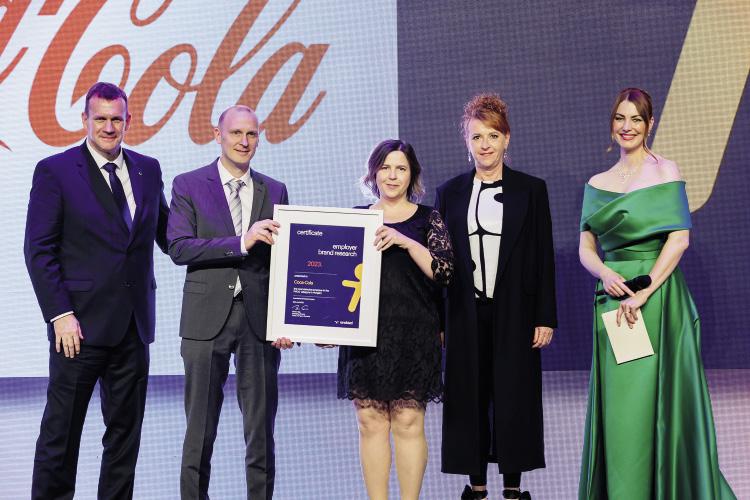Escape to victory – FMCG and retail became more attractive sectors despite the economic difficulties
After many years, the FMCG sector is once again more attractive to workers than the average, and many would like to work in retail as well.
This article is available for reading in Trade magazin 2023/6-7.

Guest writer:
Sándor Baja
managing director
Randstad Hungary
However, there are quite big differences between the 36 retail and 22 FMCG companies surveyed by Randstad: twice as many people wish to work for IKEA or Coca-Cola than for the firms at the bottom of the ranking.
What’s up with the labour force?
In 2023 37,000 more workers will retire from work than the number of 18-year-olds entering the labour market. Plus last year’s weak forint accelerated the process of workers going abroad. Just like many times in the past 1,000 years, the solution seems to be importing workers from other countries. In the short term automation won’t be able to step in the place of missing human workforce, and raising the retirement age isn’t really an option, because of the general health of the population. The government understands the situation, and very pragmatically they have allowed the import of workforce from non-EU countries in a large number of sectors, via employment agencies.
Deciding where to work: what did Randstad survey and what the trends are
For the 23rd time at global level and the 10th time in Hungary, Randstad has surveyed the workplace choosing habits and preferences of 18-65 year olds. Randstad interviewed 7,343 people in Hungary and 160,000 in 31 other OECD countries, and these people shared their opinions about 276 firms in Hungary and 6,022 globally. Just like in former years, salary was the most important workplace choosing factor for Hungarian respondents. Good workplace atmosphere and financial stability are also key attributes of a good job. It is very surprising how little Hungarians care about what the actual work involves; one would think this is only true for blue-collar workers, but actually for white-collar workers too.
Watch out: blackmail!
In the second half of 2022 14% of workers switched jobs, and this proportion was much smaller than the 17% in the same period of 2021. Only 12% of intellectuals took a new job, while the same proportion was 18% among those who are doing physical work. It is important to be aware of the fact that 29% of employees are thinking about switching jobs. As a recruitment agency we are witnessing a new trend: people apply for a job, ask for a high salary which they are offered, and then go back to their old workplace and use the offer to get a salary raise, finally staying there instead of switching jobs.
What is the situation in the FMCG sector and in retail?
Retail trade is now just as popular as logistics and building/construction, and the FMCG sector has overtaken the automotive industry and other manufacturing firms. Workers think of the FMCG sector as a workplace of high prestige and financial stability, while retail’s big advantage is easy access.

László Békefi and Zsanett Hegedűsné Szendy, corporate heads of Coca-Cola are the awardees in the FMCG-sector
Hungary’s most attractive workplaces from the 150 biggest employers are Samsung, British Telecommunications and Mercedes-Benz. From the 22 FMCG companies surveyed Coca Cola, Nestlé and Szentkirályi are the places where people want to work the most. As for the 36 surveyed, retailers, IKEA, Lidl and dm are the top three, in this order.
The happy winners received their awards in Várkert Bazár on 20 April. //
Related news
Veganuary inspires millions of people in the UK
🎧 Hallgasd a cikket: Lejátszás Szünet Folytatás Leállítás Nyelv: Auto…
Read more >Related news
Festival buzz at the 60th anniversary EuroShop trade fair
🎧 Hallgasd a cikket: Lejátszás Szünet Folytatás Leállítás Nyelv: Auto…
Read more >A stable compass in the Hungarian FMCG sector for 20 years
🎧 Hallgasd a cikket: Lejátszás Szünet Folytatás Leállítás Nyelv: Auto…
Read more >







